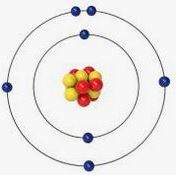Questions about radioactivity cover fundamental concepts like defining radioactivity, the three main types of radioactive decay (alpha, beta, and gamma). They also covers the concept of half-life. They also delve into the practical aspects of radioactivity, such as measuring and detecting radiation, understanding its hazards and applications, and solving quantitative problems involving decay and remaining quantities.
Here are questions that involves introduction of radioactivity in elementary school.
2. State with a reason an essential precaution to be taken when using equipment known to emit gamma rays. (1 mk)
1. X-rays are passed through the air surrounding a charged electroscope. State what is observed. (1 mk)
2. (a) What is meant by radio – active decay? (1 mk)
(b) State a factor that leads to radio – active decay of a nucleus. (1 mk)
c) Distinguish between nuclear fission and nuclear fusion. (2 mks)
d) A radio – active source, Aluminium plate and suitable detector were arranged as below:-

(i) Before the source was introduced, the detector registered a reading of 40 counts per second. Explain this observation. (1 mk)
(ii) Name the emission from the source that was received by the detector and explain your answer.(2 mks)
(iii) Explain how the reading would be affected by removing the Aluminium. (1 mk)
( e) (i) Uranium – 235 was bombarded with a neutron and fission took place in the following manner:-
Determine the values of a and b. (2 mks)
a__________________________
b__________________________
(ii) The following are tracks formed by radio – active radiation.

Identify the type of radioactive particle that forms each set of tracks. (2 mks)
X:_______________________
Y:_______________________

